Air Force Lt. Col. Todd D. Pennington, advisor to the Iraqi Air Force Operations Center, Camp Victory, said the increasing capabilities of the Iraqi Air Force are essential to protecting Iraqi sovereignty.
The Iraqi Air Force is assisting the counterinsurgency effort by providing intelligence for the ministries of defense and interior through the Air Operations Center.
One of the newest pilots flying surveillance and reconnaissance missions is a 24-year-old Iraqi lieutenant with an easy smile and a cockney British accent.
Iraqi Air Force 2nd Lt. Harith 'Harry' Saleh was born and raised in Baghdad. He was working on a degree in computer science at a Baghdad university when his father, who worked for the ministry of defense, first approached him about flying.
"He told me it was an opportunity I would love," recalled Saleh, "and so I submitted my name."
After his medical screening Saleh took his standardized English test, which all pilots are required to pass with at least a 70 percent.
Presently lieutenants with no flying experience attend basic flight school at Kirkuk Air Force Base. In 2005, Saleh was sent to train with the Royal Air Force in Cranwell, England.
Of the approximate 100 pilots attending the 10-month initial officer training course, Saleh was the sole Iraqi.
"The one thought that kept me going was, 'if I get through this, I will fly'," Saleh said.
During the initial officer training Saleh learned the fundamentals of being in the military to include combat skills, marksmanship, physical training and discipline.
"The first five months were very difficult," he explained. "I was a spoiled citizen and I got thrown into this military lifestyle, it was hell at first."
By the time Saleh completed his initial training he had become comfortable with military life and adopted a British accent to his English.
Saleh then moved on to basic flight training. The course began by reinforcing his medical training followed by ground school, which he was required to pass before he would ever step foot in an aircraft.
"During ground school you basically almost learn to fly while still on the ground," he said.
"You learn navigation skills, course corrections, principles of flight and mental dead reckoning.
"Things never work out the way you plan them on the ground so it's important to be prepared to make changes during the mission."
For Saleh flying by the seat of his pants and thinking independently in the air came naturally. Not the case for all Iraqi pilots.
"Pilots that come back in are required to retrain," Pennington, who assist the Iraqi Air Force with command control, said. "They completely depended on commands from the ground, if they were told to turn left, they turned left. They never went out and just flew."
After completing six weeks of ground school Saleh finally found his passion in the form of a German made single-engine Grob Tutor.
"It's a great plane for everything but landing," he said, "they teach you on a hard plane so it only becomes easier."
Saleh recalled his first time he felt the wheels leave the ground as the wings of the aircraft carried him into the sky.
"It's beautiful; it scared me a little bit that I wasn't scared at all my first time."
However, he was, like most pilots, nervous about his first solo flight. His landing was not as soft as he would have liked.
"But as you can see, I don't limp so obviously no major problems," he said with a smile and a wink.
On Dec. 14, 2008, Saleh completed his training on the twin engine King Air B200 and finally earned his wings.
Saleh reported to the 87th Squadron, Iraqi Air Force in February. The squadron has 6 King Air 350s, five of which are used for surveillance, intelligence and reconnaissance and the sixth is used as a transport.
"My family is very proud of me, flying is better than anything else in the world," he said.
As the co-pilot, Saleh flies with the pilot and a mission sensor operator.
"We do our bit to patrol, gather intelligence," he said. "We are the eyes that watch the guys on the ground digging and planting and they don't even know we are watching."
His goal as a pilot is to one day fly the C-130 J.
"I'm very grateful for the Iraqi Air Force, the Ministry of Defense and of course the Royal Air Force. They have done a great job."
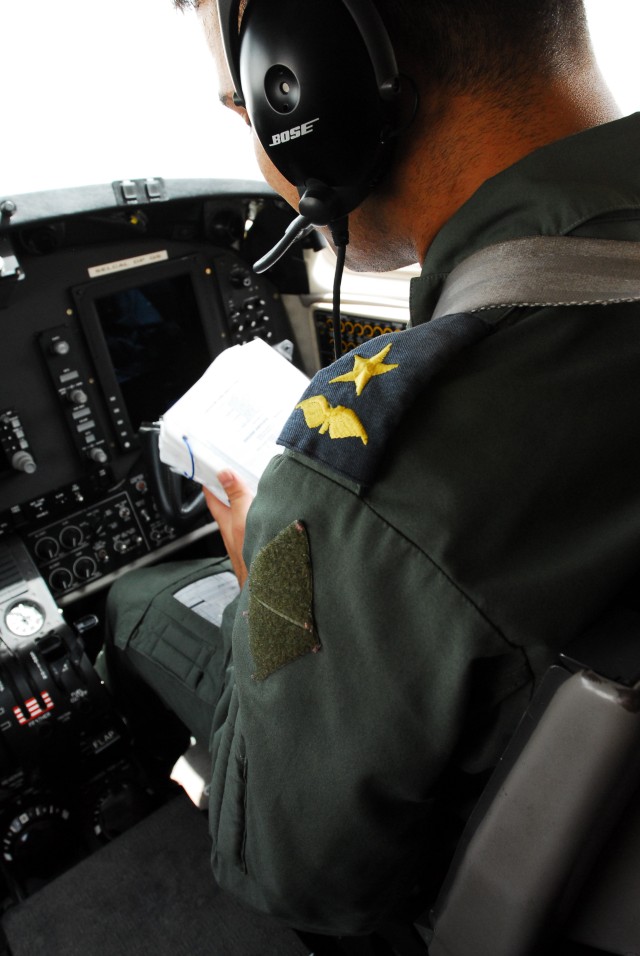
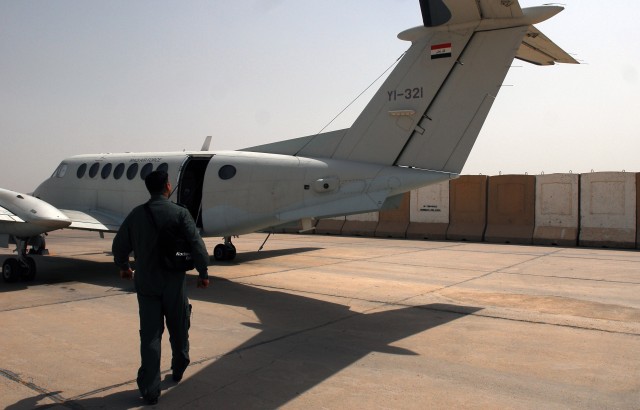
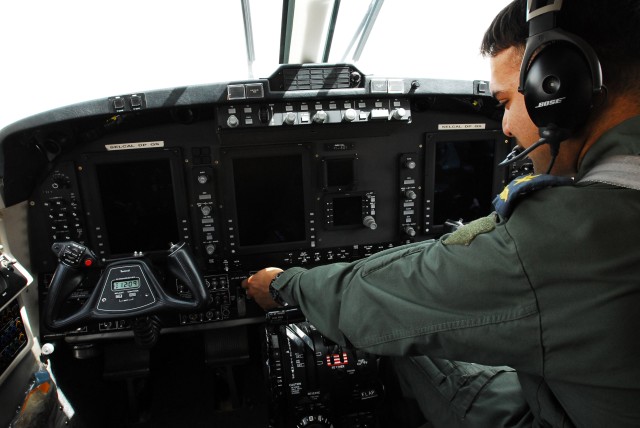
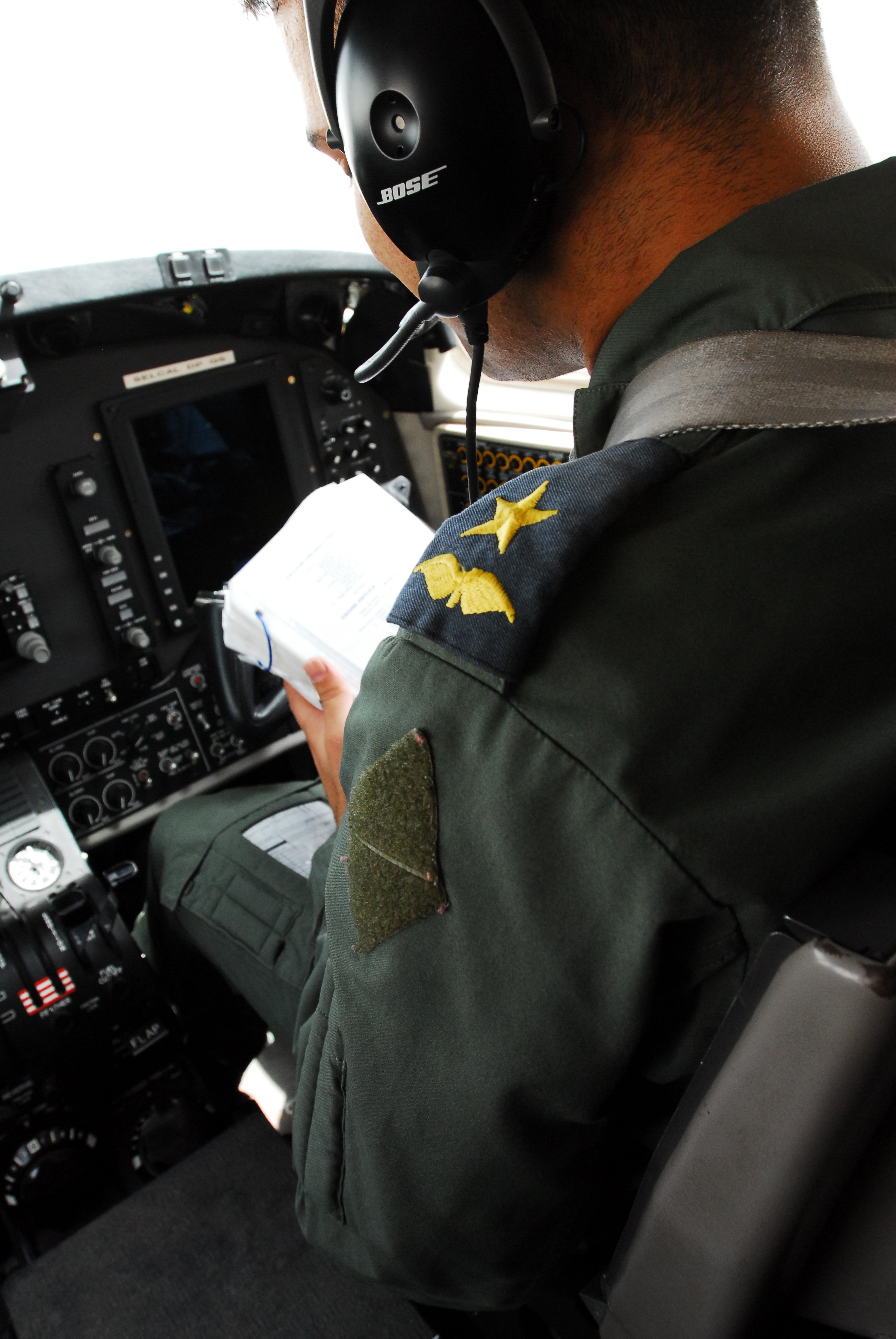
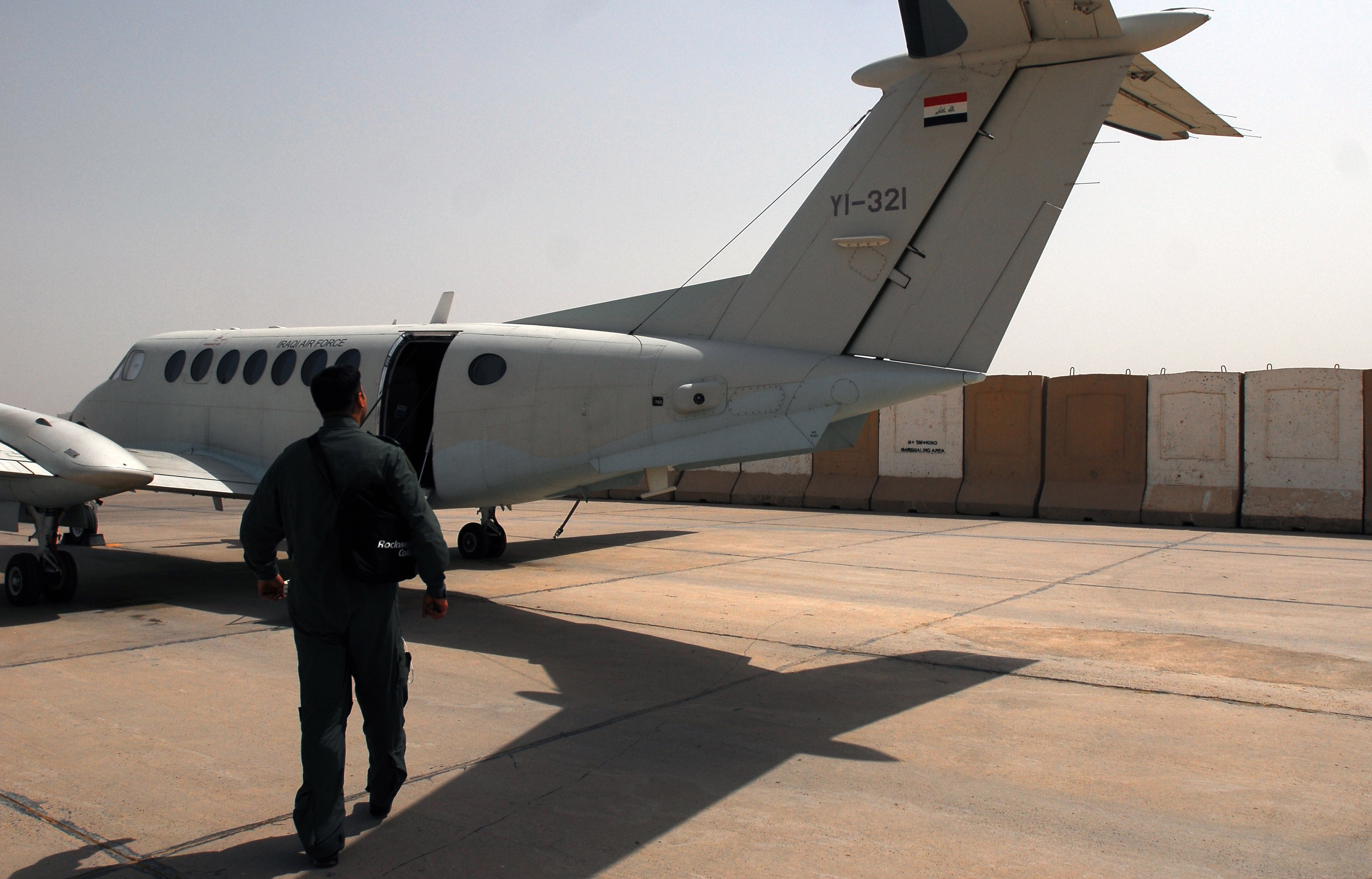
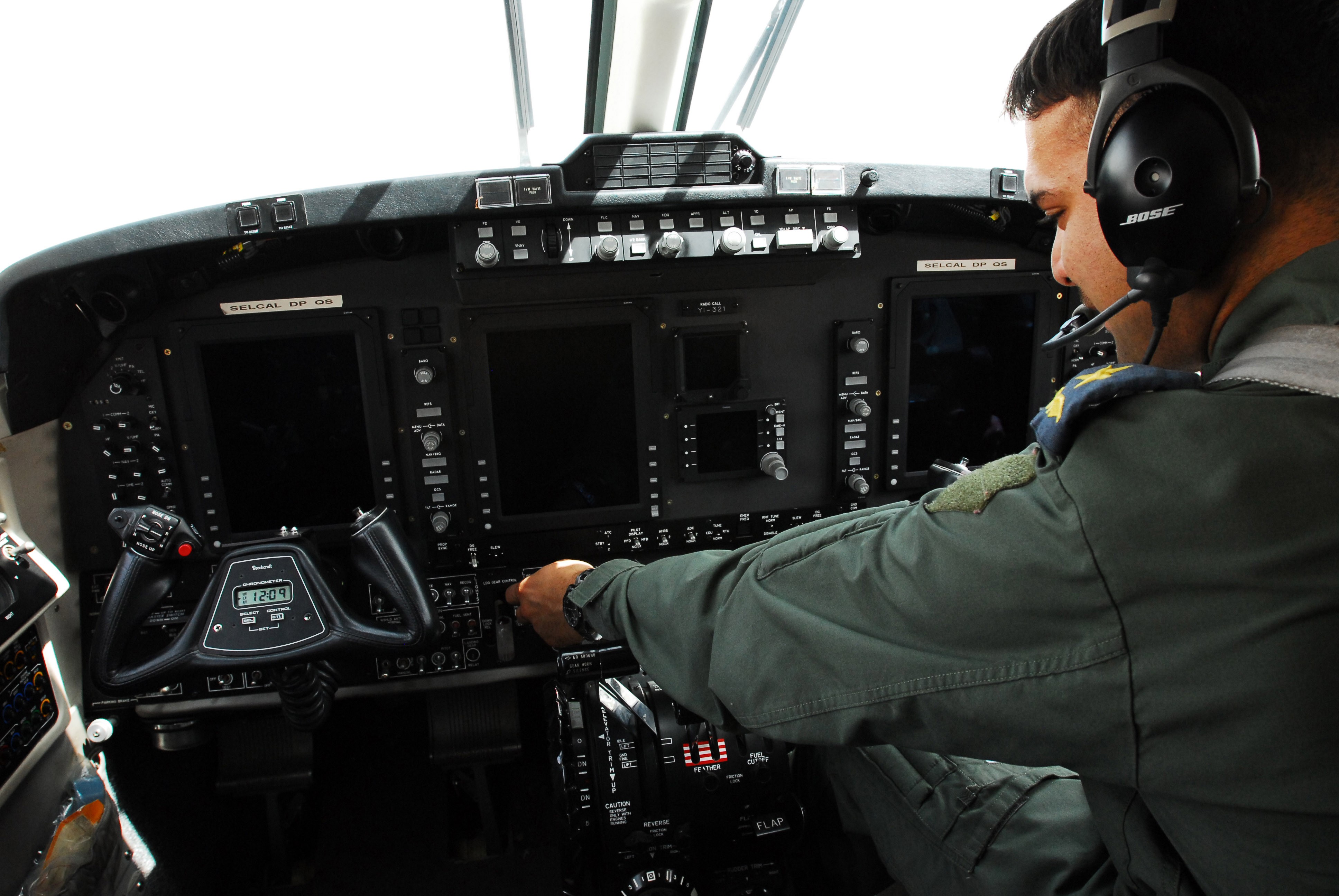
Social Sharing